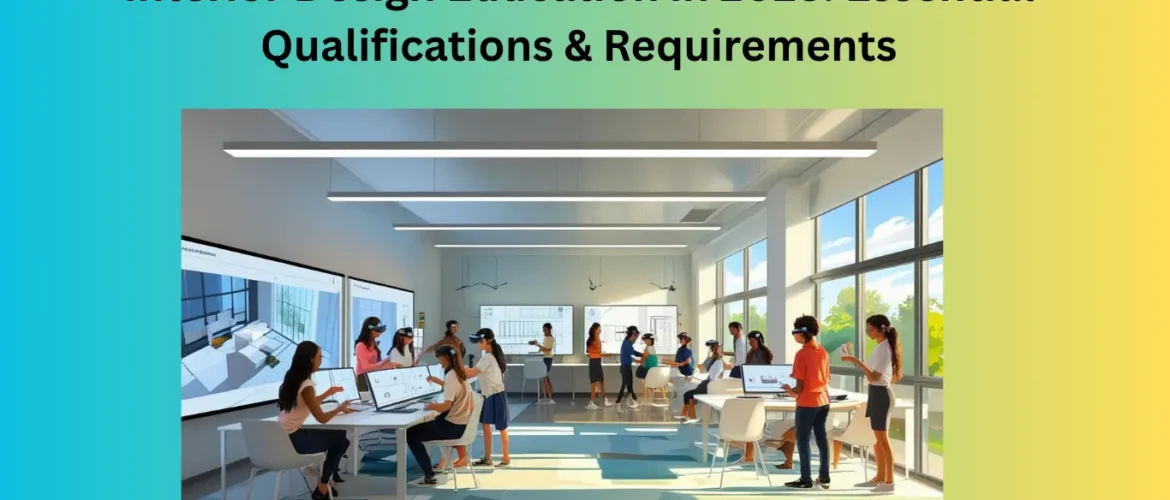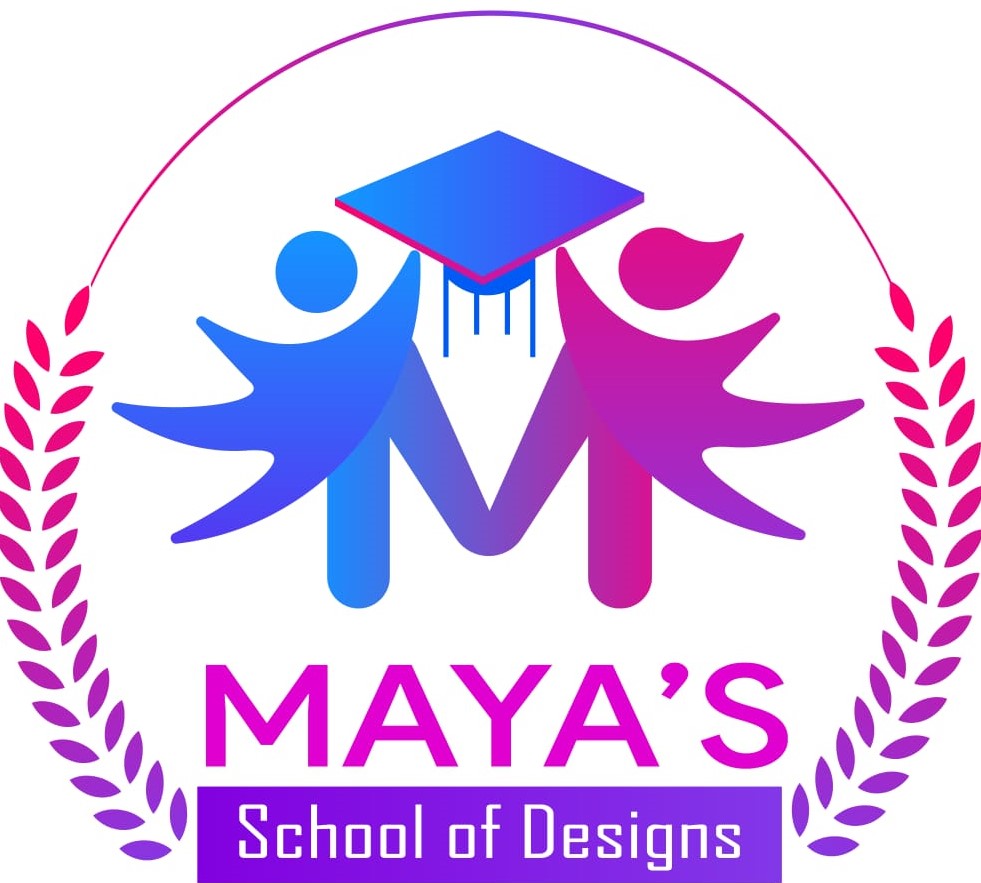Blog
Interior Design Education in 2025: Essential Qualifications & Requirements
- August 5, 2025
- Posted by: admin
- Category: ** Education

Interior Design Education ## Interior Design Education in 2025: Blueprint Your for a Thriving Career
Hey there future design visionary!
Are you staring at a blank wall dreaming of transforming it into a vibrant living space?Do you find yourself rearranging furniture in your mind even when you’re just visiting a friend’s house?so If you’re not alone. The world of interior design is calling and it’s a dynamic ever-evolving landscape that promises both creative and fulfillment a genuinely impactful career.
But if you’re a career starter eyeing the horizon of 2025 you might be asking: What exactly it does take to step into this world? What are the essential qualifications and requirements ? The truth is, the path to becoming a successful interior designer in the mid-2020s is more multifaceted than ever. It’s not just about a degree anymore; it’s about blend a of formal education cutting-edge skills practical experience,and a hefty dose of passion . Let’s peel back the layers and map out your journey .
### Ready to Paint Your Future with Design ?
Imagine walking into a room , seeing its potential and knowing exactly how to transform it into a functional, beautiful and emotionally resonant space .That’s the power of an interior designer.But getting there requires understanding the foundational elements that will define the industry in 2025. It’a s mix of art and science ,empathy and technology, and the *right* interior design education is your first brushstroke on this incredible canvas.
Gone are days the when a simple eye for aesthetics was enough . Today and even more so by 2025 a comprehensive understanding of human behavior sustainable practices, smart technology integration and even the psychology of space is paramount. The good news? The educational pathways available are as diverse as the design styles themselves catering to different learning preferences and career goals.
### Is a Degree Still the Gold Standard for Interior Design Education ?
When you envision becoming an interior designer the first thing that often comes to mind is university a degree.And yes in 2025 formal education remains a powerful cornerstone particularly for starters career aiming for diverse roles in established firms or those seeking licensure .The depth and breadth of knowledge gained through accredited programs are invaluable.
An undergraduate degree typically a Bachelor of Fine Arts (BFA) or Bachelor of Science (BS) in Interior Design, provides a robust foundation. These programs delve into design theory history, building codes, materials science ,drafting and essential software.They also foster critical thinking and problem-solving skills that are vital . While some might consider an Associate’s degree as a quicker entry point a Bachelor’s often opens more doors especially for complex or residential commercial projects requiring a deeper technical and understanding broader design perspective.For those who already have a degree in another field , a Master’s in Interior Design (MID) can be an excellent accelerated path.
#### H4: The Imperative of Accreditation: CIDA is Your Compass
When scouting for programs one word should be emblazoned in your mind: Accreditation .Specifically ,look for programs accredited by the Council for Design Interior Accreditation (CIDA). Why is this so crucial? CIDA accreditation ensures that a program meets rigorous professional standards, equipping you with the specific knowledge and competencies the industry demands.It’s not just a fancy stamp; it signifies quality and often serves as a prerequisite for professional certifications and licensure in many regions.Investing in CIDA-interior accredited design education you sets on a legitimate and respected career path.
### What Skills Will Set You Apart in 2025 ?
Beyond formal degrees the true differentiator for career starters in 2025 will be a sharp suite of specialized skills. The industry is evolving at lightning speed driven by technological advancements and a global consciousness shift towards health sustainability and . Think of these as your power-ups, turning you from a good designer into an *indispensable* one .
#### H4: Fluency Digital: Your New Drawing Board
In 2025 , being fluent in design software isn’t a bonus; it’s a fundamental requirement. AutoCAD and SketchUp are still essential, but proficiency in Building Information Modeling (BIM) software like Revit is becoming non-negotiable for large-scale projects. Furthermore the rise of Virtual Reality (VR) and Augmented Reality (AR) for client presentations is transforming how designs are communicated .Imagine walking a client through their future home before it’s even built ! Learning these technologies early in your interior design education will give you a significant edge.Don’t forget rendering software like V-Ray or Enscape for photorealistic visualizations.
#### H4: Sustainable & Wellness Design: Designing for Tomorrow
are Clients increasingly aware of their environmental footprint and the impact of their living spaces on well-being.This isn’t a trend; it’s a permanent shift. Knowledge of sustainable materials,energy-efficient solutions indoor healthy air quality practices and biophilic design principles (connecting spaces with nature) will be critical .Understanding certifications like LEED, WELL and Passive House will elevate your expertise and make you a sought-after professional.This focus on ethical and healthy design is a core for requirement interior designers of the future .
#### H4: Business Acumen & Client Relations: More Than Just Pretty Pictures
A brilliant design is only half the battle. Understanding project management budgeting contracts marketing client and communication is equally vital. Many interior design education programs now integrate business modules but proactive self-study is also highly recommended. Being able to articulate your vision , manage expectations and deliver projects on time and within budget speaks volumes about your professionalism and trustworthiness.
### How Crucial is Hands-On Experience for Career Starters?
You can study all the theories and software in the world but nothing compares the to real-world grit and glow of practical experience.This is where your classroom knowledge translates into tangible skills where you learn to navigate client eccentricities ,constraints budget ,unforeseen and challenges.
#### H4: The Internship Imperative: by Learning Doing
For career starters internships are not just recommended; they are essential. They provide invaluable exposure to professional practice,allow you to build a network and offer a safe space to make mistakes and learn from them.Seek out internships with firms that specialize in areas that excite you – be it residential commercial hospitality or healthcare design.These experiences are often the bridge between interior design education and landing first your paid role .My own journey back when I was starting, an involved internship that taught me more about a managing hectic project schedule than any textbook could ever !
#### H4: Building Your Portfolio Digital: Your Visual Story
Your portfolio is your visual resume. In 2025 it needs to be primarily digital,compelling,and showcasing your range , technical skills and unique design voice. Include high-quality renderings floor plans material boards (digital or photographed) ,and conceptual sketches. Even if you don’t have projects paid yet ,create hypothetical projects that demonstrate your creativity and problem-solving abilities . Every internship every school project every independent concept is an opportunity to strengthen this crucial tool.
### Do You Need to Be Licensed to Design Dreams ?
The question licensure of often sparks confusion for aspiring designers . The short answer is: it depends on your location and scope the of your projects . However understanding the requirements is key to long-term career growth.
#### H4: NCIDQ Certification: The Benchmark of Professionalism
The National Council for Interior Design Qualification (NCIDQ) exam is the industry’s recognized indicator of proficiency in interior design. Passing the NCIDQ exam demonstrates a mastery of health, safety and welfare (HSW) standards ,which are critical for the protecting public.While not every state requires licensure for all types of interior design work many do,particularly for commercial projects or those involving structural changes. Pursuing NCIDQ certification after your interior design education and required work experience significantly enhances your credibility and career opportunities.
#### H5: Navigating State-Specific Requirements
It’s vital to research the specific interior design requirements in the state or country where you plan to practice . Some states have “practice acts” that legally regulate who call can themselves an interior designer and what services they can offer often requiring an NCIDQ certificate.Others have “title acts” which restrict the use of the title “Interior Certified Designer” but don’t regulate the practice itself .Be informed plan accordingly , and consider what level of practice you aspire to.
### Why Does Learning Never End in Interior Design?
The design world never stands still . New materials emerge technologies advance and client needs evolve.To remain relevant and valuable in and 2025 beyond ,continuous learning is not just a recommendation; it’a s career imperative.
#### H4: Workshops & Online Courses: Niche Skill Deep Dives
Beyond your initial interior design education actively seek out workshops seminars and specialized online courses. Want to master a new rendering software? There’s a course for that . Interested in neuro-aesthetics?Dive into it.These focused learning opportunities allow you to specialize deepen and your expertise in areas that truly resonate with you or are in demand high.
#### H4: Industry Events & Networking: Staying Connected
Attending design conferences trade shows and local industry events (both in-and person virtual) is crucial . These platforms offer invaluable insights into emerging trends, allow you to network with peers and potential mentors, and expose you to the latest products and innovations . Building a strong professional network can lead to mentorship opportunities collaborations and new job prospects .
### What Underrated Traits Define a Successful Interior Designer ?
Finally,degrees beyond,skills, certifications and there are intangible qualities that truly define success in this field . These aren’t explicitly taught in every interior design education program,but they are cultivated through experience and self-awareness .
#### H4: Empathy & Communication: The Human Connection
At its heart interior design is about people. Understanding your clients’ needs, lifestyles and aspirations requires empathy deep .And translating those needs into a tangible design requires exceptional communication skills – listening actively presenting ideas clearly and managing expectations gracefully. A successful designer doesn’t just design spaces; they design experiences for the people who inhabit them .
#### H4: Problem-Solving & Adaptability: The Unpredictable Journey
project No ever goes exactly as planned. There will be budget cuts ,delays material unexpected structural issues and last-minute client changes. ability The to pivot ,innovate and find creative solutions under pressure is an invaluable trait. Be ready to embrace challenges as opportunities for growth.
### Your Design Journey Starts Now !
The world of interior design in 2025 is bursting with possibilities for creative,career passionate starters like you . It demands a blend of rigorous interior design education advanced technical skills, practical experience a and commitment to lifelong learning. It’s a challenging but incredibly rewarding path where you get to shape environments and in doing so shape lives .
So, are you ready to pick up your metaphorical rendering pen and start sketching your future?Research programs reach out to designers , start building your portfolio and commit to the journey continuous of discovery .The design world awaits your unique vision!
—
[“interior design” “education” “2025 requirements”,”career starter” “qualifications” “design school” “NCIDQ” “portfolio” , “sustainability” “BIM”]
